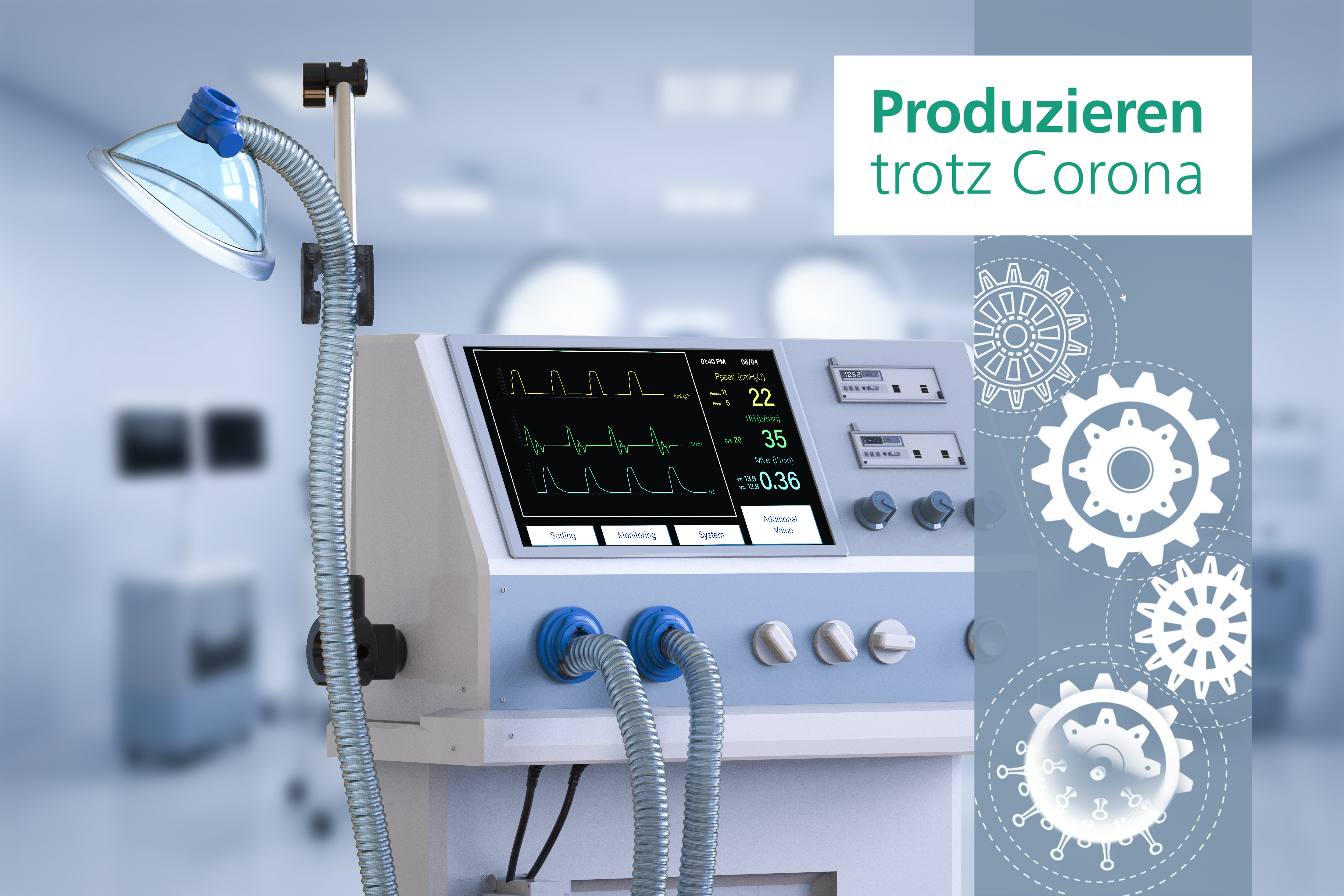Open Source Hardware against Corona: Study to examine the potential for safe, large-scale production of open source ventilators
With the advent of the COVID-19 pandemic, the open source hardware community quickly announced the development and manufacture of complex medical ventilators. The project OPEN.Effect aims to evaluate the community’s performance and effectiveness and to identify ways to quickly unlock its potential. The researchers are calling for participants for the associated study.
The pandemic has made it clear that there is a shortage of essential ventilators in Germany, Europe and the world at large. Companies, research institutions and private individuals quickly started to develop improvised devices. Thus, a highly dynamic movement emerged, which, however, has no clear contact persons, is unmanageable in its actions and activities and does not pursue a clear production strategy. Like all medical technology products, ventilators must meet high quality standards worldwide. National and international regulations sometimes vary widely and make approval very difficult and time-consuming depending on the country or region.
So how can alternative producers develop, manufacture and certify ventilators quickly and safely, so that they can be used for the treatment of patients? Researchers at Fraunhofer IPK are looking into this question as part of the OPEN.Effect research project. The team is currently inviting members of the international open source hardware community to participate in a survey as part of a study. The scientists will mainly collect experiences from projects dealing with medical open source hardware. They want to find out what is to be achieved with the projects, what the current situation of the community is, and what the challenges are. Their aim is to use these findings to identify potential for improving the effects of medical open source hardware projects.
The interviews will take place in June and July 2020 and are aimed at everyone who feels part of the community: whether as makers in fablabs or makerspaces, employees of companies (especially SMEs) that use such hardware, or as experts in medical technology or related scientific fields.
Interested parties are kindly asked to get in touch with project coordinator Sonika Gogineni until June 30, 2020. The results of the study will be presented and made available to the public by the end of August.
OPEN.Effect is financed by the Fraunhofer-Gesellschaft as part of the »Fraunhofer vs. Corona« campaign.
 Fraunhofer Institute for Production Systems and Design Technology
Fraunhofer Institute for Production Systems and Design Technology